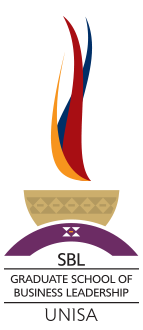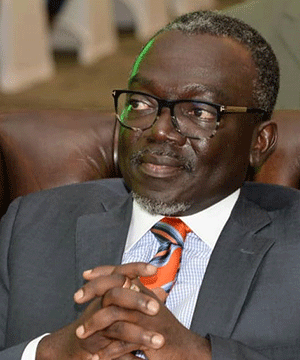

Douglas Boateng is the first-ever Professor Extraordinaire for supply and value chain management in Africa, appointed by the SBL. He is an international chartered director, who also serves as the independent chairman of Ghana's Public Procurement Authority (PPA). Appointed by President Nana Addo Dankwa Akufo-Addo in 2017, Boateng performs a non-executive supervisory role at the authority to help transform and reposition the organisation in support of Ghana's long-term industrialisation and socio-economic developmental agenda.
Peer-reviewed research publications from, among others, UCL’s Genetics Institute, are increasingly supporting the hypothesis that SAR-COV-2 (ie Coronavirus) may have been with us since the last quarter of 2019. According to Prof Francois Balloux, director of the institute, genetic evidence supports suspicions that the virus was most likely infecting people in Europe, the USA and elsewhere weeks or even months before the first official cases were reported in January and February 2020.
Dr Yves Cohen, head of resuscitation at the Avicenne and Jean Verdier hospitals has similarly revealed that a man in France was infected with Covid-19 as early as 27 December 2019, nearly a month before authorities there confirmed the first cases. Balloux further opined that, at most, 790 million people - that is, 10% of the world’s population - have been exposed to the virus. As Prof Marc Lipsitch from Harvard University rightly pointed out, the SAR-COV-2 spreads rapidly, with "infectants" transmitting it before they even know they are infected. He projects that between 40-70% of the world's population could become infected.
The rapid global spread may have been started by travellers who got infected who travelled to China, and back home and/or directly to various destinations in Europe, USA, Africa and the rest of the world. Some of these "globetrotters" included South African-based businesspeople, C-suite executives, academics, policy makers, students, tourists, politicians, traders, diasporians, and so forth.
South Africans will recall that during the last quarter of 2019, there was an influx of visitors and businesspeople into the Western Cape and Gauteng provinces for holidays, business meetings and conferences. It is highly possible that this cunning and elusive coronavirus could have made its way into South Africa then, via several asymptomatic carriers. The two provinces currently account for more than 70% of recorded infections directly linked to the inflows during that period.
The swift, bold and decisive move by the President and Government to lock down the country as well as immediately commence tracing and testing, certainly helped South Africa to avert the unfortunate cataclysmic incidents currently unfolding in the USA, Spain, Brazil, Italy and the UK.
As at 17 May 2020, known infections as a percentage of South Africa’s total population remains below 0.03%. Of these documented infections, 119 cases (roughly 0,0002%) of the total population were deemed serious or critical cases. The 264 Covid-19 unfortunate fatalities as a percentage of the 15 515 known infections was around 1.7%. This is well below the global and African mortality benchmarks of around 6.7% and 3.6%, respectively. The more than 7 000 recovered cases as a percentage of documented infections was 45% and above the global and African benchmarks of 38.4% and 38.5%, respectively. These factual data certainly provide further proof that the interventions by Government, coupled with citizenry vigilance, are working, and augurs well for the future.
With more testing and tracing, infection cases both locally and globally will definitely show an upward trajectory for the rest of 2020 and possibly beyond. However, increasing evidence shows that getting infected with SAR-COV-2 (ie coronavirus) does not necessarily lead to the full-blown Covid-19 disease. Nor is the disease Covid-19 necessarily a death sentence.
It is for this reason that out of the more than four million infections that have been documented globally, more than 1.8 million people (38%) have already fully recovered. As of 17 May 2020, serious critical cases as a percentage of the recorded global and African infections were approximately 1% and 0.4%, respectively, and improving. In South Africa, the 119 serious and critical cases as a percentage of locally known infections was roughly 0.77%.
South Africans must respectfully accept that since the coronavirus spread supposedly started during the late fourth quarter of 2019, it is highly possible that there is a relatively high number of asymptomatic carriers already in our society. These nationals have unintentionally infected others. The new asymptomatic "infectants" who do not know that they are carriers also innocently continue to spread the virus. Hence the need for ongoing vigilance by all. Time will be best judge as to whether these earlier carriers have developed innate or adaptive immune responses to the virus.
To date, approximately 0.60% of the world’s population have recorded infections. Leading academics and scientists, including Dr Stephen Fauci, an American physician and immunologist and director of the National Institute of Allergy and Infectious Diseases, continue to warn that the true extent of the pandemic is not known due to insufficient testing infrastructure globally. The situation in South Africa is no different. Hence, there is an urgent need to improve public healthcare supply chains, as well as tracing and testing capabilities in anticipation of an extended showdown with this highly contagious, cunning, and elusive beast.
The World Health Organisation (WHO) estimates the reproductive number (R0) for the SAR-COV-2, which indicates the transmissibility of the virus, to be between 2 and 2.5. Behaviour patterns are inextricably linked to the R0. If the number is above one, the infectivity rate increases exponentially. Should it be below one, the virus dwindles, as virtually no infections are occurring. South Africa is yet to determine the country-specific R0 for this dreadful virus. However, it is looking increasingly likely that it is currently nowhere near the WHO estimate and most likely currently below zero.
For the reproductive number to remain below zero, there can be no relaxation on ongoing tracing, testing, isolation, treatment, continuous tracking and monitoring.
For the reproductive number to remain below zero, there can be NO relaxation on ongoing tracing, testing, isolation, treatment, continuous tracking and monitoring. There should also be strict adherence to containment measures such as the wearing of the right face protection masks, improved personal hygiene, washing of hands, restrictions on public gatherings, distancing in communal and public areas, in offices, schools and work areas, and border controls.
Finally, South Africa is part of an interconnected world. The country is increasingly becoming the aero logistics, supply chain hub and gateway into the Southern African Development Community (SADC) region, and has already been drawn into this complex global "war". On 12 May 2020, Dr Michal Ryan, Executive Director of the WHO’s Health Emergencies Programme, warned the world that, like HIV and AIDS, the SAR-COX-2 virus and Covid-19 disease may become part of the global community for a long time. All South Africans must, therefore, prepare for a possible prolonged battle with this lethal micro-organism by individually and collectively continuing to act as true citizens by adhering to the strict protocols to protect each other, as well as help to especially shield the aged and vulnerable in our society from this incredibly dangerous micro-organism.
Without a doubt, science and engineering will eventually solve this complex Covid-19 conundrum. However, nobody currently knows how long it will take. South Africa has so far done well so far and will emerge stronger to implement the nation’s transformational agenda.
* By Douglas Boateng, Professor Extraordinaire for supply and value chain management in Africa, Unisa Graduate School of Business Leadership (SBL)
Publish date: 2020-05-20 00:00:00.0
Contact the Marketing and Communication office: Ms Thami Kaunda at kaundn@unisa.ac.za
011 652 0339
Telephone: +27 11 652 0248 / +27 11 652 0291
Email: sbl@unisa.ac.za
Physical Address:
Cnr Janadel and Alexandra Avenues
Midrand, 1686
Gauteng, South Africa
Download map & directions (PDF)